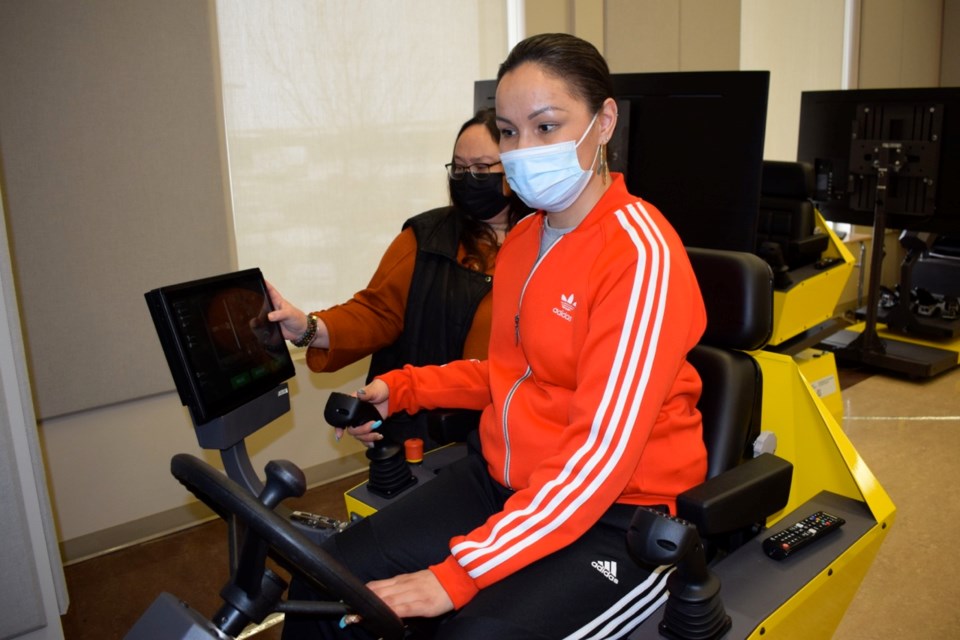ESTEVAN - Students at the Southeast College’s Estevan campus have been learning abilities that will help them prepare for the workforce and for further learning at the school.
Essential Skills for Employment (ESE) teaches them about such things as basic communication, document use, computers and technology, said instructor Pam Gunnlaugson. The program has been around for a while, and has provided work placements in the community with various businesses, but this is the first time it has been paired with a post-secondary offering at the college.
“We do different safety courses, first aid, WHIMIS (workplace hazardous materials information system) and as a class, we work on interview skills, resumes, job searches, cover letters – everything to get you back into the work force or into the workforce for the first time,” Gunnlaugson said.
It is being offered in conjunction with the college’s heavy equipment operator (HEO) and early childhood education programs, with students venturing into those classes after completing ESE.
“As a college, we decided to pair with some of our post-secondary courses, and if you successfully complete the essential skills program, then your program is actually sponsored by the college,” said Gunnlaugson, who noted that the college covers the tuition and the books.
Sheena Onrait, the college’s manager of marketing and communications, said this is a new way of looking to match the essential skills students – who are looking to advance their career and skills, and become good employees – with their post-secondary programming.
Five students will be entering the HEO program, and two will go into early childhood education. The college is also allowing students from the adult basic education program take the same courses, because they transfer over into Grade 12 credits.
An HEO Spend a Day event was held Thursday, in which Turnbull Excavating spoke to the students, and they could try out the simulator.
Some students have never had a job, and others have been in the oilfield previously.
“I have students who are older and just want new skills. Some are younger. Some are new to English as a language,” said Gunnlaugson.
“It’s a very diverse student body,” Onrait added.
This is the only program of its kind being offered within Southeast College. It’s also the first time they have trialed this partnership with a post-secondary program. If it’s successful, it might be branched out to other campuses.
“It’s a great program. Pam’s a heck of an instructor and mentor to our students,” said Onrait. “Pam has a vast experience level as an instructor with Southeast College. She’s instructed our adult basic ed. programs, she’s instructed our office administration program, and now of course has gone into our … program and will be … instructing adult basic education.”
The HEO program, which will begin its second year in April, has pivoted this year, as it has 16 students instead of eight, and they will be working in the field throughout the program. A couple of spots are still available.
“We took a couple of really great feedback information items from out students and our instructors last year, and of course integrated them into this year’s program.”
The intent of the program, Onrait said, is to take students who need further employment skills, give them those skills, and then bridge them into post-secondary and into the workforce right away.








